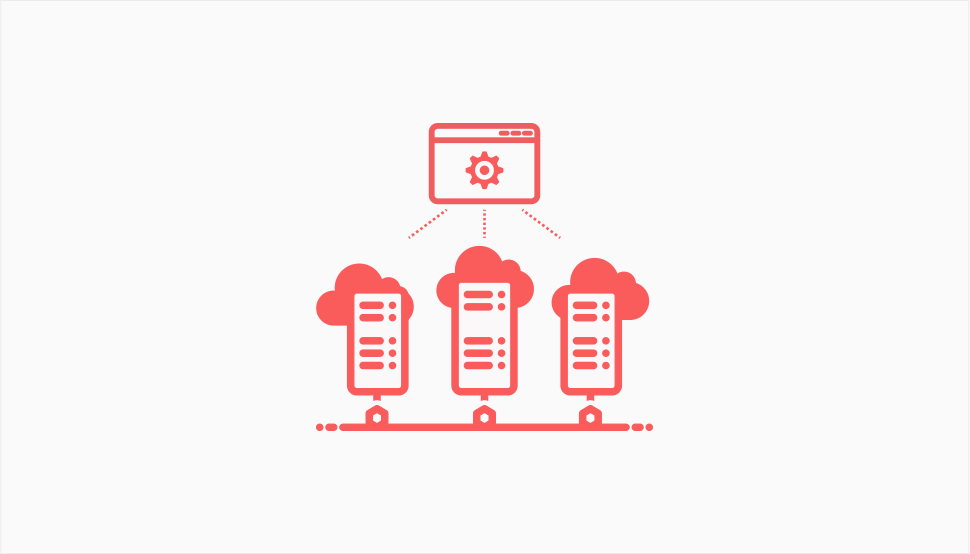How to Choose a Hosting Provider for Your WordPress Website

Are you planning to build a WordPress website? If you are, you might have been on a research binge, trying to figure out everything that you’ll need to create and run a successful website. We can help you with some things – the WordPress themes we have will make your website look great. We can explain what plugins are, and point you towards some of the best ones for any use you might need.
As far as WordPress hosting goes, you’re a bit on your own. Finding a good WordPress hosting provider isn’t that hard – the ones that dominate the market are all good choices. But are they the choices that will fit your needs? How do you choose a hosting provider?
We’ll answer those questions here. We’ll help you understand:

Technically, you can have a WordPress website without having to secure the services of a hosting provider. You can simply find your way to WordPress.com, create an account, and build your website for free. It is that easy if you want to have a website ready in an instant.
But you know those cool WordPress themes you could be using, like personal blog themes or hotel themes? You wouldn’t be able to use them with WordPress.com, at least not with the free version. The same goes for all those plugins that can make your website such a great place to visit.
The ability to use plugins and themes are some of the more major differences between WordPress.com and WordPress.org – which is what we often call a self-hosted solution.
These are not the only differences by a long shot – the full list is much longer. But they paint an accurate picture – to get the most out of WordPress, you need a self-hosted solution. Now, whether you decide to host on your servers or use a hosting provider is completely up to you. Keep in mind there’s a reason people opt to work with hosting providers because it’s much less work and fuss.

Before you start looking into hosting providers, you should understand what types of hosting there are. As some might not be available with the very provider you come across, figuring out the type early on might help you narrow down your choices. Here are the choices you’ll have.
Shared Hosting
With shared hosting, your website is just one of the many websites hosted on a single server. Because you share a certain amount of resources such as space and bandwidth with your neighbors, you get the privilege of having your website hosted for dirt cheap, usually.
The cracks begin to show when either you or your neighbors start requiring more resources. Because you’re all drawing on a limited pool, someone’s going to end up with less than they need. And let’s not mention the issues that might arise if one of the websites on the server catches a nasty bug.
Still, because of its affordability, shared hosting is a popular option. If you have a small business website or a personal blog, shared hosting might be completely adequate.
VPS Hosting
VPS – Virtual Private Server – hosting is a more advanced option that’s perfect for mid-tier websites. With it, your website doesn’t get a physical server of its own, but it gets a virtual server that has the potential to scale like nothing else.
VPS hosting is great for websites that plan to see a significant increase in resources. It’s the option for the ambitious website owner who means business, but also knows a thing or two about tech.
The downside is that this option isn’t as affordable as using shared hosting. But it is much, much better in every other way that counts for a more demanding website.
Dedicated Hosting
You get the whole thing with dedicated hosting – a full server with all its resources, all of your own, ready for you to use it for any need you see fit. That’s right, no more sharing for you with dedicated hosting.
It’s not all gravy with dedicated hosting, as it has a flaw that puts it out of the reach of many bloggers and small-to-medium website owners. Dedicated hosting is awfully expensive.
Because of its features, it works out perfectly for the biggest websites that need the most stable presence even with high traffic, and don’t mind paying for it. If that doesn’t describe your website, well, maybe dedicated hosting isn’t for you.
This is the best option for the website owner who doesn’t know a whole lot about the technical WordPress stuff and just wants to get along and create a nice website. With managed WordPress hosting, you just do you and let the hosting provider take care of everything related to the hosting.
Here’s an example. With managed hosting, you’ll typically get some sort of help with WordPress installation, probably through a one-click installer. If you’re transferring a WordPress website, you might have access to proprietary plugins that take care of it. Your host will take care of your website’s security and come up with solutions that will optimize your website’s performance.
They might also take care of backing up your website, as well as updating WordPress. You could also ask them for on-demand backups and to provide you with a staging area to play around. Finally, a managed solution is likely to give you access to expert support staff, people who know the ins and outs of WordPress.
This type of hosting comes at a price, however. So if it fits your budget and you don’t want to have many dealings with the everyday running of the website, managed hosting is just the thing for you.

You’ll want to pick a WordPress host that offers the type of hosting that’s the best match for your website’s needs. Remember that the type of hosting affects speed – especially at peak traffic – as well as the price. Other factors you should look for are the following.
Website Uptime
A great thing about having a website is that you have something that’s always working. Or, at the very least, is working most of the time – no website is up all the time. That’s why we have server uptime monitoring, to tell us how much time our website has spent down.
Web hosts will guarantee a certain amount of uptime. The industry standard is 99.9% of the time, and you shouldn’t accept anything less. You should also be careful with accepting something significantly more – adding a nine to the fraction is possible but claiming 100% uptime is a red flag.
Performance
Because performance will be affected by the type of hosting you choose, it might seem like it’s difficult to differentiate between good and bad performance for the same level of service.
Some hosting providers’ servers will behave differently even under a light load. Make sure that you choose a hosting provider that’s not notorious for offering too little, especially for the cheaper types of hosting. You shouldn’t expect a shared-hosting website to be lightning-fast, but you shouldn’t lose visitors for its slowness, either.
Support
Whatever you’re doing, make sure that the people whose job is to help you when something goes awry know what they’re doing and have the patience they’ll need when dealing with you.
Because you’ll be using WordPress, you want the support staff of your WordPress host to be well versed in, well, WordPress. A hosting provider that tries to attract WordPress users – has ads or landing pages that mention WordPress, for example, should know their way around WordPress. If they just so manage to have content about WordPress in the help section, even better.
Offering and Scalability
As your website grows and attracts visitors, it will need more resources to keep running well. And even if you don’t see this coming for a while, you should still prepare for it – otherwise, you’d have to think about switching hosts.
Make sure you choose a host that offers plans that give you some headroom to make changes. You should be able to upgrade your plan as your needs increase, or downgrade as they decrease.
Security
You probably know that the internet is very far from being a safe and secure place. Your website can easily become a target of an attack, and if it does, you’ll wish your host has done something to improve your website’s security.
Some of the things hosts can offer in terms of safety and security include firewalls, support for encrypted connections, two-factor authentication, IP blocking, and different kinds of active and passive security systems. DDoS protection, malware protection, and so on. Your host should offer as many of these features as possible.
Pricing
Different hosts will have different packages at different price points. You should shop around and look for the host that offers what you need at a price you can afford. Keep in mind, however, that you usually get what you paid for, which means that the more expensive options might come with significant benefits.
One thing you might want to avoid is free hosting. Even though some providers that offer free hosting can be a good choice for you, anything you get for free either comes with conditions or with a significant cap on resources. So if you want to dabble in making a website, it’s okay to use free hosting. If you want to have a website that you’ll want to keep, maybe look for a better option.
Reputation
Finally, you won’t be able to test some of these things out without signing up for the hosting service. What you will be able to do, however, is researching the options before you commit to any of them. And it’s important that you do because that’s how you’ll get wind of the provider’s reputation.
Make sure to check reviews and see whether people are mentioning some of the red flags such as unrealistic promises, underdelivering on the terms, poor support, deceptive language. Try to learn from other people’s mistakes and give a wide berth to those sketchy hosting providers.

There are lots and lots of hosting providers that will vie for your attention – and subscription fees. Many of them are good, legit, hosting providers that might be the perfect place for your website to come into being and grow.
Some WordPress hosting providers with good reputation include:
WordPress.org has its recommendations for WordPress hosts that you don’t have to follow. You might as well because the three mentioned there- Bluehost, DreamHost, and SiteGround – are bound to appear on every list of the best WordPress hosts, including this one, but feel free to shop around.
Let’s Wrap It Up!
As long as you plan on building a WordPress website, you might as well ensure that you use the best WordPress hosting provider you can afford. The choices of the provider can influence your website in ways that aren’t just small and subtle but can shake it to its core and bring it to a grinding halt.
So take your time, do your due diligence, and read as many reviews as you can. Keep in mind that the price and the quality of service are important, but so is having all the features that you need. Above all, try to plan and think about what you’ll need a couple of years from now. You don’t have to pay for it right away, but make sure that your hosting provider can give you access to it when you need it at a good price.



